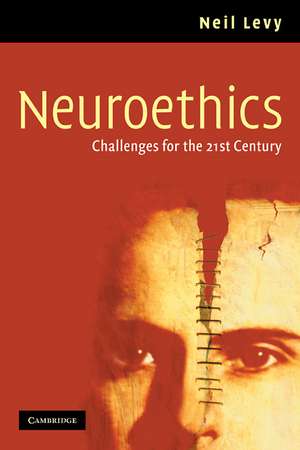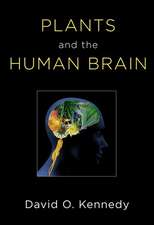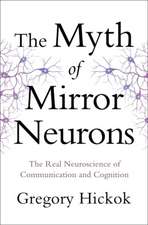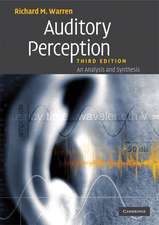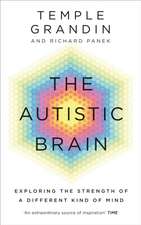Neuroethics: Challenges for the 21st Century
Autor Neil Levyen Limba Engleză Paperback – 11 iul 2007
Preț: 458.86 lei
Preț vechi: 515.57 lei
-11% Nou
Puncte Express: 688
Preț estimativ în valută:
87.81€ • 91.34$ • 72.50£
87.81€ • 91.34$ • 72.50£
Carte tipărită la comandă
Livrare economică 14-28 aprilie
Preluare comenzi: 021 569.72.76
Specificații
ISBN-13: 9780521687263
ISBN-10: 0521687268
Pagini: 364
Dimensiuni: 152 x 229 x 23 mm
Greutate: 0.5 kg
Editura: Cambridge University Press
Colecția Cambridge University Press
Locul publicării:Cambridge, United Kingdom
ISBN-10: 0521687268
Pagini: 364
Dimensiuni: 152 x 229 x 23 mm
Greutate: 0.5 kg
Editura: Cambridge University Press
Colecția Cambridge University Press
Locul publicării:Cambridge, United Kingdom
Cuprins
1. Introduction; 2. Changing our minds; 3. The presumption against direct manipulation; 4. Reading minds/controlling minds; 5. The neuroethics of memory; 6. The 'self' of self-control; 7. The neuroscience of free will; 8. Self-deception: the normal and the pathological; 9. The neuroscience of ethics.
Recenzii
'Neil Levy's book is an important contribution to the developing field of neuroethics. His mastery of a breadth of disciplines from neuroscience and cognitive psychology to moral philosophy is impressive. This book will be a valuable guide to any reader wishing to think seriously about the relationship between neuroscientific knowledge and our understanding of moral judgement, personal responsibility, and the philosophy of mind and brain.' Richard Ashcroft, Professor of Biomedical Ethics, Queen Mary, University of London
Notă biografică
Descriere
An ethical and philosophical examination of our understanding of human powers and nature.
